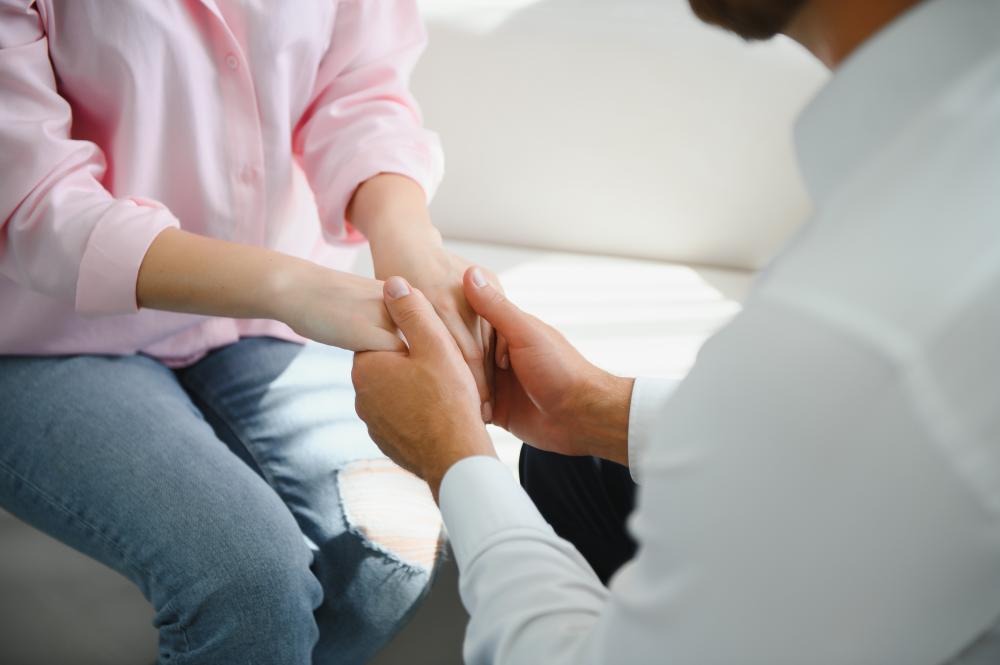
Holistic Approach to Mental Health
At ATX Recovery in Austin, Texas, we embrace a holistic approach in addressing mental health needs. Our focus is on understanding the unique challenges faced by each individual, ensuring that treatment is personalized and effective. In a city as dynamic as Austin, it’s crucial to provide services that are both comprehensive and adaptable, catering to a diverse population.
Our team employs a mix of cutting-edge therapies and tried-and-tested methods, all aimed at fostering long-term healing. By integrating physical, emotional, and psychological elements, we support a multifaceted recovery process that caters to the whole person, not just the symptoms of their mental health disorder.
Comprehensive Mental Health Services
Customized Treatment Plans
Every person who walks through our doors is unique, and so is their treatment at ATX Recovery. We craft individualized plans to fit the specific mental health disorders of each client, utilizing therapies like Cognitive Behavioral Therapy (CBT) and Dialectical Behavioral Therapy (DBT) to achieve optimal outcomes. Our personalized approach ensures that each individual gets the attention and tailored support they need on their journey to recovery.
Our services are not limited to just clinical treatments; we understand the importance of lifestyle and habit modifications in mental health recovery. Through a mix of traditional and modern therapeutic practices, we aim to provide the best austin tx mental health treatment available.
Role of Substance Use Treatment
Substance use often coexists with mental health challenges, making comprehensive treatment imperative. At ATX Recovery, addressing this duality is a significant part of our program. We offer specialized care for those battling substances, ensuring they receive the same level of care and expertise as our mental health clients.
Detox is handled with precision and care, guided by a team of licensed professionals. We then transition our clients into residential or intensive outpatient programs, which offer a supportive environment for tackling the root causes of substance use.
Treating Co-Occurring Disorders
For many, mental health and substance use disorders occur simultaneously. ATX Recovery specializes in treating these co-occurring disorders, understanding that they often require an integrated approach. Our team is skilled in developing strategies that address both issues holistically, ensuring that each client receives the comprehensive care they need.
Through therapies like Eye Movement Desensitization and Reprocessing (EMDR), we help clients process and overcome traumatic experiences that may be feeding both their mental health and substance use struggles. This integrated approach ensures that treatment is effective and sustainable.
The success of our program lies in its flexibility and adaptability, ready to adjust to the evolving needs of our clients. With a strong support system in place, we empower individuals to take control of their lives and regain their independence.
Importance of Family Support
Recovery does not happen in isolation. At ATX Recovery, we emphasize the role of family in the healing process, offering resources, education, and support groups specifically designed for them. Family members are encouraged to participate actively, as their involvement can significantly boost the recovery process.
Workshops and counseling sessions help families understand the nuances of mental health and substance use disorders, better preparing them to support their loved ones. This inclusive approach not only aids the individual receiving treatment but also strengthens family bonds, creating a nurturing environment conducive to healing.
Diverse Therapy Options
Experiential and Expressive Therapies
At ATX Recovery, we recognize that traditional talk therapy is not always enough. That’s why we offer a wide array of experiential and expressive therapies, such as art, music, and dance, to unlock emotional expression through creative outlets. These therapies can be particularly beneficial for those who find it challenging to articulate their thoughts and feelings verbally.
Experiential therapy, involving activities like ropes courses and team-building exercises, is another avenue we explore. These activities encourage self-discovery and reflection, providing insights that can be pivotal in the recovery journey. Our diverse offerings ensure that each individual has access to the tools and strategies that resonate most with them.
Integrating Educational Components
Education is a powerful tool in mental health and substance use recovery. At ATX Recovery, we integrate educational components into our treatment plans, ensuring that clients and their families understand the dynamics of addiction and mental health. Workshops cover topics ranging from coping mechanisms to understanding the biology of addiction, providing clients with a comprehensive knowledge base to support their recovery.
Informed clients are empowered clients, capable of making decisions that favor their mental health and sobriety. By providing this crucial information, we aim to enhance the overall treatment experience and set our clients up for success beyond our facility.
Our team’s commitment to ongoing education ensures that we remain at the forefront of the latest research and developments in the field, equipping clients with cutting-edge tools and insights.
Building Long-Term Support Systems
Recovery is a lifelong journey, and at ATX Recovery, we are dedicated to ensuring our clients have the support they need long after they leave our facility. Our alumni programs provide ongoing support, fostering a sense of community and belonging that is vital for sustained success.
We offer regular check-ins, group sessions, and events that keep our graduates connected to their recovery network. By maintaining strong ties with our clients, we help them navigate the challenges they may face in their everyday lives, offering encouragement and guidance when needed.
Testimonials and Success Stories
Real-life testimonials underscore the impact of effective austin tx mental health treatment at ATX Recovery. Our clients often speak of the transformative experience they have undergone, attributing their newfound stability and happiness to our comprehensive programs and compassionate staff.
Testimonials like those from Jordan M. and Taylor L. highlight the individualized care and holistic approach we take, emphasizing how our treatment extends beyond addressing symptoms to uncovering and working through the root causes of mental health challenges and substance use.
These success stories are a testament to our commitment to excellence and the powerful impact that a caring, empathetic approach can have on an individual’s wellness journey.
Accessibility and Availability
We believe that access to quality mental health care should be within everyone’s reach. ATX Recovery has multiple locations in Austin and neighboring areas, making it easier for individuals to seek help. Ensuring that austin tx mental health treatment is available nearby is part of our mission to make recovery accessible to all.
Our locations in places like Bee Cave, Cedar Park, and Round Rock offer the flexibility needed for individuals to access the right level of care at the right time. Whether someone needs the intensity of residential treatment or the flexibility of outpatient care, we have options available to suit different needs and lifestyles.

Does Texas have good mental health services?
Texas has made significant strides in enhancing its mental health services over recent years. Various institutions are dedicated to providing comprehensive care, including ATX Recovery in Austin, which offers personalized and holistic treatment for individuals facing mental health challenges. Texas continues to expand access to quality care by integrating modern therapeutic practices and evidence-based approaches, ensuring individuals receive the support they need. However, like many states, there are areas for improvement, particularly in rural regions where access might be more limited. Engaging with local resources and mental health professionals can greatly improve outcomes, and organizations like ATX Recovery are pivotal in this endeavor. What areas do you think still need attention in mental health services where you live?
What is the most effective mental health treatment?
The effectiveness of mental health treatment often depends on the individual and their specific needs. At ATX Recovery, we emphasize a personalized approach, utilizing therapies such as Cognitive Behavioral Therapy (CBT), Dialectical Behavioral Therapy (DBT), and Eye Movement Desensitization and Reprocessing (EMDR). Each of these has shown great success in treating various mental health disorders. Combining these therapies with other supportive measures like family involvement and lifestyle modification often leads to the best outcomes. It’s crucial to remember that the “most effective” treatment varies from person to person, and having a flexible, adaptable treatment plan is key. Have you ever tried a specific therapy and seen noticeable improvements?
How do I get someone mental help in Texas?
Getting mental help for someone in Texas can start with an open and honest conversation about your concerns and the options available. Encourage them to reach out to facilities like ATX Recovery, which offers comprehensive mental health and substance use treatment. You can also contact local mental health hotlines or an individual’s healthcare provider for guidance. Texas has a variety of resources, including outpatient services and residential treatment centers, tailored to support individuals at different stages of their recovery journey. Supporting your loved one with understanding and patience while guiding them towards professional help is essential. What are some ways you’ve found effective in starting this kind of conversation?
What types of programs are out there to help people with mental health?
There are numerous programs available to assist individuals with mental health challenges. ATX Recovery, for instance, provides a wide spectrum of services, including detox, residential treatment, partial hospitalization, and outpatient care. These programs are designed to cater to different levels of need and recovery stages. Additionally, experiential and expressive therapies, educational workshops, and family support groups are offered to enrich the recovery process. Such diverse options allow for customization in treatment plans, making them more effective. Beyond clinical programs, community support groups and mental health workshops offer additional layers of support. How do you think creative therapies can complement traditional mental health treatments?
What role does family support play in mental health recovery?
Family support is crucial in mental health recovery, often serving as a stabilizing force for individuals undergoing treatment. ATX Recovery emphasizes this by offering family workshops and support groups to educate and involve family members in the healing process. When families are engaged, they’re better equipped to provide emotional support, creating a nurturing environment that significantly boosts recovery outcomes. This support helps in reinforcing the coping skills learned in therapy and ensures that the individual does not feel isolated during their recovery journey. In what ways have you experienced family support positively impacting someone’s recovery?
Why is a holistic approach beneficial for mental health treatment?
A holistic approach to mental health treatment, such as the one embraced by ATX Recovery, focuses on treating the whole person–mentally, physically, and emotionally–rather than just the symptoms of a disorder. This can lead to more sustainable recovery as it addresses the underlying causes of mental health issues. Holistic methods often include integrating physical health, lifestyle changes, and alternative therapies like yoga or meditation, alongside traditional psychotherapy. This approach can provide a more comprehensive and long-lasting healing process. How have holistic treatments influenced your perspective on managing mental health?
Mental Health Resources
- National Institute of Mental Health (NIMH) – The NIMH is the leading federal agency for research on mental disorders. They provide information on mental health conditions, treatment options, and ongoing research.
- Substance Abuse and Mental Health Services Administration (SAMHSA) – SAMHSA is a government agency that works to improve the quality and availability of treatment for mental health and substance use disorders. They offer resources for individuals seeking help.
- American Psychiatric Association (APA) – The APA is a professional organization representing psychiatrists in the United States. Their website offers resources on mental health conditions, treatment guidelines, and finding a psychiatrist.
- National Alliance on Mental Illness (NAMI) – NAMI is a grassroots mental health organization dedicated to providing support, education, and advocacy for individuals and families affected by mental illness. Their website offers resources and information on various mental health conditions.
- MentalHealth.gov – This government website provides information on mental health conditions, how to get help, and resources for supporting others. It aims to raise awareness and reduce the stigma surrounding mental health.






